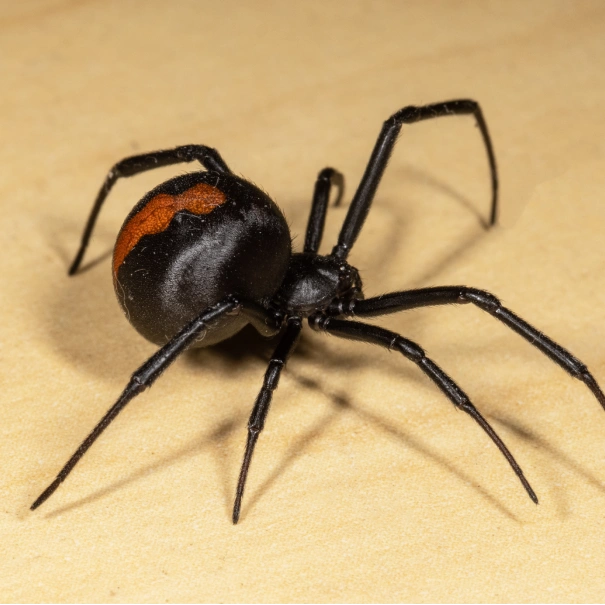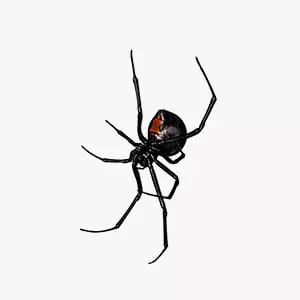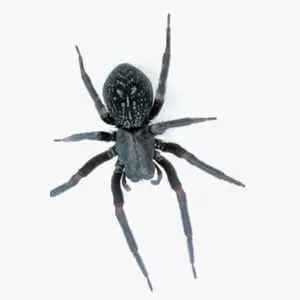Spider Pest Control

Complete Spider Pest Control
Newcastle and Hunter Valley
Spiders are scary for some and can be a safety concern, especially with children and pets.
You don’t have to be an arachnophobe to want a spider free home. Although they can be beneficial in keeping insects at bay, the bites from some spiders can be painful and their webs can be very unsightly.
A professional spider treatment from Rebel Pest Professionals will eliminate your spider problem, provide long lasting protection and keep your home web-free for many months.
Fear no more!

How we get rid of spiders > Professional Spider Treatments
As with all our pest treatments we start with a thorough inspection to fully understand the nature of the problem. Spotting web-building spiders is relatively straight forward, but if you have a problem with hunting spiders (such as the white-tail spider), we will need to carry out a more detailed inspection to try and find the source of the problem.
The “Spider Spray”
To eliminate spiders and provide long lasting protection, it’s necessary to carry out a comprehensive treatment inside and outside the home. This involved using professional, long lasting spider sprays, which knockdown and kill any spiders present and also leaves behind a long-lasting residue on the surface to provide protection for many months and prevent spiders from building their webs.
Outside the home
We carry out a comprehensive barrier treatment, not just a spot spray like some companies may do.
The areas we treat:
- Complete perimeter treatment:
- Vents & weepholes
- Doors and windows
- Eaves
- Gutters and downpipes
- Cracks & crevices
- Other fixed items around the perimeter of the building
- Other areas
- Garage & carport
- Play equipment
- Fencing
- Gardens
- Mailbox
- Garbage bins
Inside the home
We treat roof voids with insecticide powders (redbacks love roof voids and down lights!) and sub-floors if you have one.
Safety concerns?
We will always discuss any safety concerns you may have before carrying out a treatment. We do this over the phone at the time of your booking and with our on-site risk assessment before carrying out a treatment. If we are carrying out a spray treatment, it will be necessary to keep children and pets out of the area until the treatment is dry. We always choose the products with the best safety and environmental profile.
What to expect from our spider treatments?
Any spiders present at the time of treatment will die within an hour, although spiders hiding deep in crevices will only get affected when they emerge, so you are likely to see spiders dying during 24-48 hours after treatment.
What do you do with spider webs? Do you brush them down prior to treatment or give the customer instructions to brush them down a day or two after treatment?
If you do not like spider webs against your home, we suggest you brush them down prior to the day of treatment. Alternatively, you can wait 2-3 weeks after the treatment and then brush them away.
The treatment leaves an invisible insecticide residual on surfaces preventing spiders moving into an area and building their webs for many months. It is important not to wash treated surfaces as it will wash the treatment away and reduce its effectiveness.
What Our Customers Say
What are the signs of a spider problem?
It should be pretty obvious when you have a spider problem – you see spiders or their webs in or around your home!
However, there are certain things to look for which may indicate a spider problem may develop in the future:
- If there are plenty of insects around, it means there is plenty of food for spiders
- Spring is spider breeding season, so even one or two spiders in spring, could develop into a significant spider problem later in the year
- Check roof void, downlights, fencing (especially tubular pool fencing) and outdoor items for redbacks
- Check door and window frames, vents and eaves for the webs of black house spiders

How to prevent a spider infestation
Spiders aren’t attracted to light, but their prey are! As a result, they love to build their webs near or around lights.
Spider bite first-aid
If bitten by a spider take the following steps
- Make sure the victim is calm and sitting down
- Clean the bite area with water and disinfectant
- Apply ice if the bite area becomes painful
- Seek medical attention if you know it is a redback bite, cannot identify the spider or there is concern about the health of the victim
If you know or suspect the bite is a funnel-web you should apply snake bite first aid:
- Calm the victim and keep them still
- Immobilise the affected limb
- Apply a pressure bandage
- Call for medical assistance immediately
If you cannot identify the spider, taking a photo is a good option (rather than trying to capture the spider).
More information on spider bites…
More spider information
From a pest control point of view, spiders are often split into web-building spiders and running or hunting spiders. This is because they present different types of problems and require two different control techniques.
Web-building spiders, such as redbacks and black house spiders, are pretty easy to control, as you can see their webs and so you know where to treat. Treating similar hiding places will also prevent other spiders building their webs.
Hunting or running spiders, such as huntsman and white-tailed spiders, tend to be ground dwellers and so to keep them out of the house it relies on applying a wide band of insecticide right around the building and other entry points. However, such spiders walk on the tips of their feet and so don’t always pick up a big dose of insecticide as they cross treated areas, so they can sometimes get inside before their die. However, a thorough pest treatment around the home will eliminate the insects which form their prey, and so will make the house less attractive to these hunting spiders so the chances of one wandering in after a treatment is very small.
Our Locations









